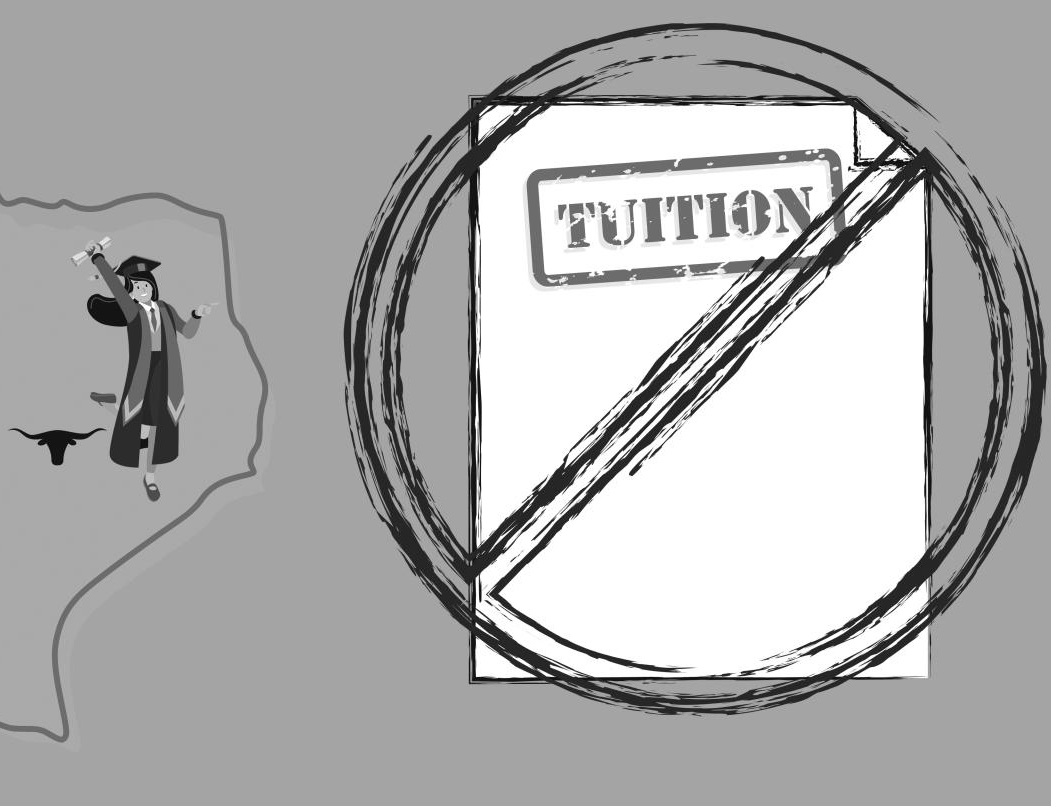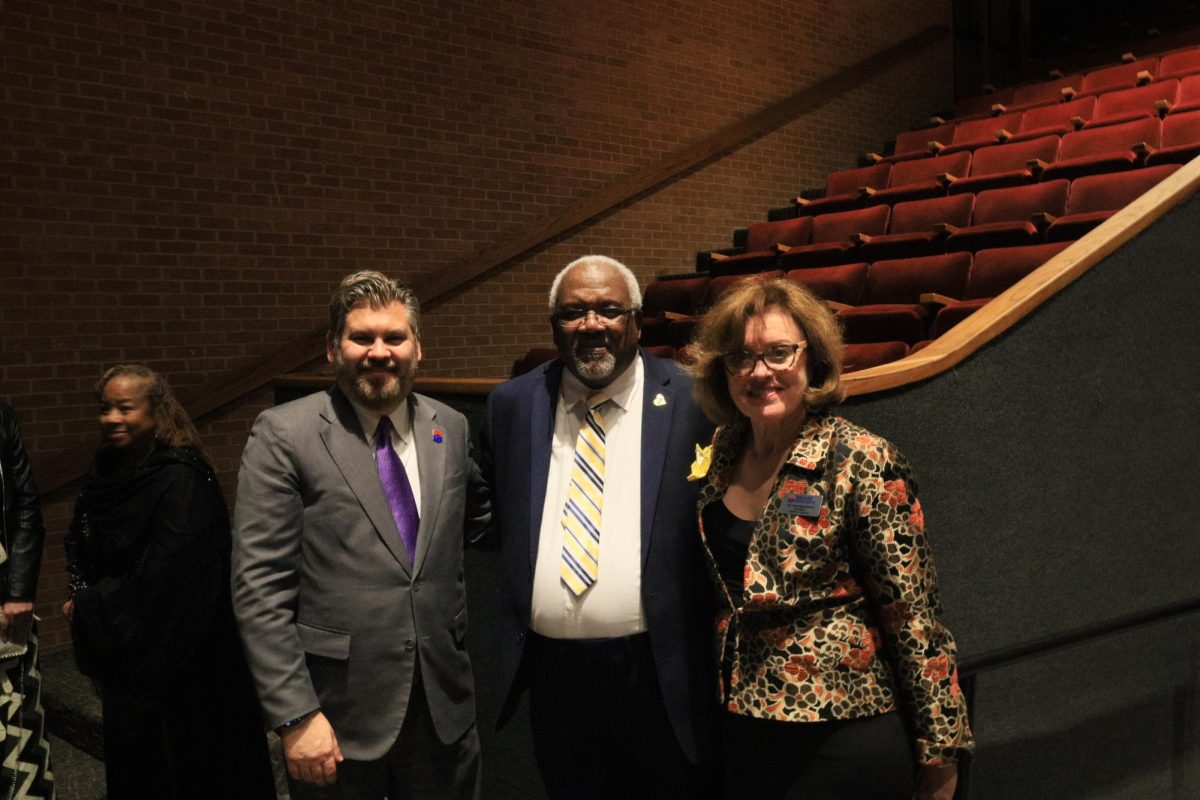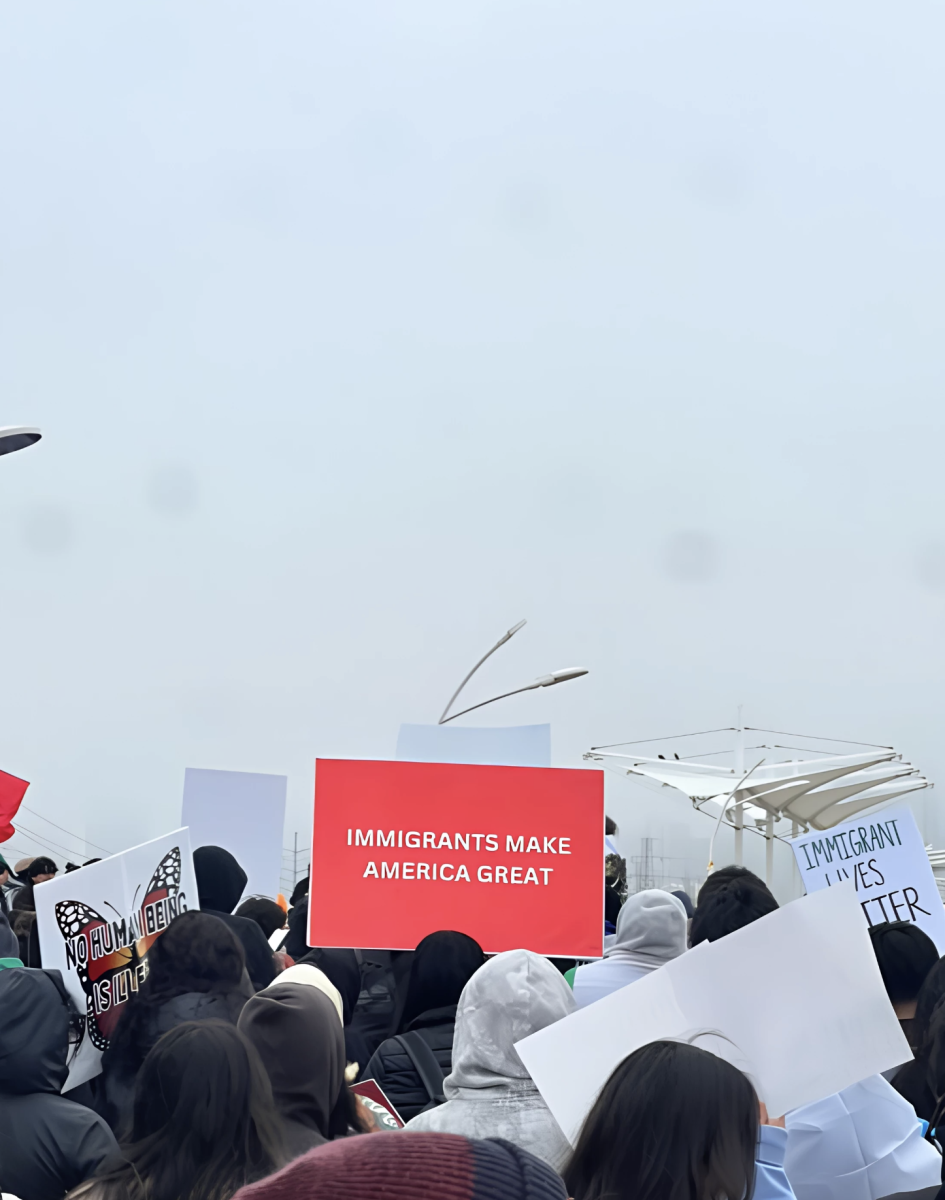In his first week back in office, President Donald Trump signed multiple executive orders related specifically to immigration.
They covered a range of issues including border security, birthright citizenship, asylum and refugee programs, and mass deportations. While the impact is still to be determined, students at Dallas College are expressing shock and concern.
Patrick Moore, a government professor at the Richland campus, believes that many of the executive orders are unlikely to take effect immediately.
“The greatest likelihood is that the really controversial executive orders that are going to negatively affect students here will not be of immediate effect because lawsuits will happen, and the courts will take time to resolve those lawsuits,” Moore said.
He explained that though students without a secure legal status may be worried about deportation, it is improbable.
“In the immediate future, nothing is going to change if mass deportation actually starts happening. That’s not something to worry about today,” he said.
Even though it is not likely that these executive orders will go into immediate effect, according to Martina Sarabia, LULAC president at the Eastfield Campus, students are experiencing a range of emotions.
“I follow a lot of my peers and classmates on social media, so I was able to see the reaction through their posts. I would mostly say, shock, shock, shock,” she said.
Students are worried about their safety. “Who’s guaranteed that we’re going to get safety in school?” said Sarabia.
Students are also worried about their family and friends.
“Well, I think we can go back to this part about safety, but also about if you are an undocumented student or have parents, family or friends who are going to be affected by this, right?”
“I think there’s a lot of worry about what is going to happen. And it’s not really easy to go to school and do your daily life when you’re not sure if you’re going to come home and your parents aren’t going to be there, or if your family is going to be OK, or your friends,” Sarabia added.
There are ways for those in the community who have concerns to get involved.
“The first answer is to vote,” said Moore. However, since it is not possible to vote year-round, there are other ways to get involved.
“The other thing people can do is contact your elected officials, your senator, your congressman, your state representative, state senator and contact the president and the governor.”
“Contact all those people that represent you and tell them that you oppose things that you oppose and that you support things that you support,” he said.
There are also organizations that empower students to use their voices. Sarabia said.
“We have LULAC, but we also have other organizations who are working for the rights of people, and even if you’re not part of the Latino/Hispanic community, you can always get involved.”
“It’s not just reserved for a specific demographic group, but it’s for everyone. And I think just keep in mind the power of speaking up. This is part of civic engagement. Just remember politics is for everyone, and you can do your part by being informed and informing people around you.”



















